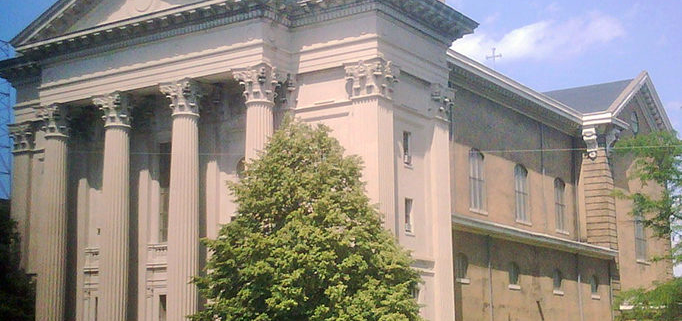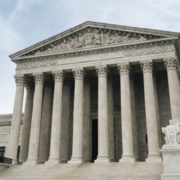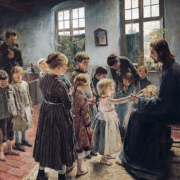Yet Another Lawsuit Against the Church
The Archdiocese of Indianapolis is the target of yet another lawsuit — this one from a guidance counselor whose contract to help form students at Roncalli High School was not renewed for the coming school year, because she entered into a same-sex marriage.
With this and other similar disputes in Catholic schools, Archbishop Charles Thompson is clearly under assault. And the same fight is coming to every bishop and every Catholic school and college that courageously upholds the mission of Catholic education — as well as those schools and colleges that carelessly go forward without clear and consistent Catholic policies, thereby opening the doors wide to ideological activists and legal trouble.
Just last month, the Indianapolis archdiocese settled a lawsuit by a teacher who was dismissed from Cathedral High School for his same-sex marriage.
That teacher is legally married to a man who still teaches at Brebeuf Jesuit College Preparatory School, where leaders refuse to comply with archdiocesan policy requiring Catholic school teachers to avoid scandal. Now the school’s leaders have filed a canon law suit with the Vatican, challenging Archbishop Thompson’s episcopal right and duty to determine whether the school may be called Catholic.
In the latest lawsuit filed in federal court last week, plaintiff Lynn Starkey accuses Roncalli High School of discriminating against her because of same-sex attraction. But Starkey was employed at Roncalli for 39 years, and even after she violated her contract by entering into a scandalous, permanent, same-sex commitment, Roncalli did not fire her. Instead, it chose not to renew her contract.
Another counselor at Roncalli, Shelli Fitzgerald, is expected to sue in the next month or two. Fitzgerald was placed on administrative leave last fall, following (you guessed it) her same-sex marriage.
These suits join a growing number of attacks against Catholic schools and colleges across the country, because the Church prescribes morality standards in Catholic education. Why are so many Catholic school and college employees eager to challenge such standards? It may be that the standards are not stated clearly enough, or that they are not consistently applied, so that employees are genuinely surprised to lose their jobs. Surely there is also the hope that courts today are willing to support discrimination claims instead of upholding religious freedom. In Starkey’s case, it is especially astounding that a guidance counselor at a Catholic school could fail to appreciate that teaching and witnessing to Catholic moral principles are essential to her job.
Catholics should not be naïve in thinking that there is anything substantially unique about Indianapolis. Catholic education nationwide faces serious threats from within and without, and too many schools and colleges are insufficiently prepared for the legal battles.
The best thing that school and college leaders can do — immediately, without hesitation — is to ensure that every internal policy and practice is consistent with the formation of students in complete fidelity to Catholic teaching, and that employees embrace this mission without compromise. That makes lawsuits unlikely, resists the corruption of Catholic identity, and allows for a vigorous defense of religious freedom in court.
In the weeks and months ahead, there will be more lawsuits. We must pray for our bishops and school leaders to have the fortitude to make a strong stand for faithful Catholic education. Only if Catholic educators get back to their roots and defend their foundations, will they preserve their most important mission of forming students in the faith.
This article first appeared at The National Catholic Register.




 Photo by David Mark via Pixabay CC0
Photo by David Mark via Pixabay CC0

